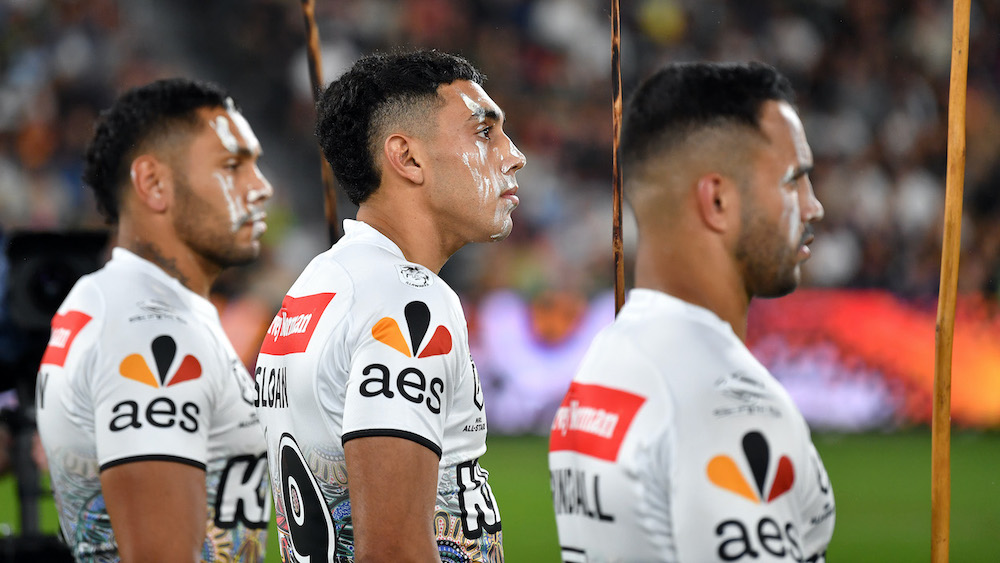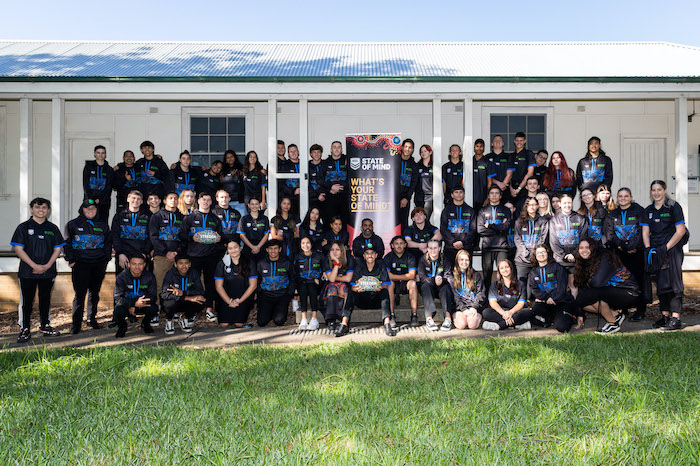
Indigenous Communities in Focus:
NRL Champions Native People from Education to Employment in Australia & New Zealand
August 12, 2022
On August 9, Beyond Sport joined the world in celebrating the United Nations’ International Day of the World’s Indigenous Peoples. To further expand, this month we are taking a special focus on sport for development organizations within our network that serve Indigenous communities.
Today, we’re spotlighting 2016 Beyond Sport Global Award winner the National Rugby League (NRL) whose Community team spoke to us about a dedication to the inclusion of Indigenous peoples across the game and supporting Native peoples from education to employment in Australia and New Zealand.
The NRL is the pre-eminent rugby league club competition in Australia and New Zealand. Each year, it delivers extensive programs to create positive social change across three key focus areas: health and wellbeing; respect; responsibility and inclusion. Its community programs use sport to lead and inspire people to be the best they can be.
The sport of rugby in particular is important to Indigenous communities in Australia and New Zealand. "Rugby League has been a place for Indigenous people to play alongside their non-Indigenous teammates. The sport has provided Indigenous players with a level of equality on the field that had not been experienced off the field. Rugby League has and continues to provide a platform for Indigenous Australians to elevate themselves and their communities to a platform where Indigenous excellence is celebrated on a national platform," explained NRL.
Many of the organization's programs are geared towards addressing some of the disadvantages that Indigenous peoples experience. The population of Indigenous communities in Australia is 3.3% of the population and in New Zealand is combined is 17.1%. The unemployment rate for Aboriginal and Torres Strait Islanders is 3.8 times the rate for non‑Indigenous Australians (19% compared to 5%). And in New Zealand, the Māori unemployment rate (10.8%) is especially high - well above the national unemployment rate (4.9%).
The NRL’s School to Work (S2W) program – which won them the Beyond Sport Global Award in 2016 – focuses on supporting Indigenous youth and people during and after school. The education and employment program is backed by NRL players, Clubs and NRL staff that work closely with the community and business sectors to create successful pathways. Through work experience, mentoring and leadership opportunities, the program “utilizes the positive profile of Rugby League to support and encourage our Indigenous Youth to complete their schooling and successfully transition into further education or employment.”
“S2W is beneficial for kids coming through that pathway of looking for jobs after school. Telling kids that there is a pathway, not just in Rugby League, but in schooling areas as well. And, that school does take you places, and Rugby League can but, at the end of the day school’s more important than Rugby League,” said Caitlan Johnston, NRWL Newcastle Knights and NRL Women’s All-Stars player.
“The more organizations create a culturally safe and inclusive environment the more Indigenous communities are able to be represented, heard and elevated through socio-economic disadvantage that has been imposed upon them.”

Since receiving 2016 ‘Sports federation or governing body of the year’ honors, S2W has supported and assisted over 1900 Indigenous students to complete their last year (Year 12) – 98% of which transitioned into employment or further education. Currently, the S2W program is supporting over 1100 Indigenous students transitioning from school into employment and education.
NRL also provides an annual Indigenous Youth Leadership Summit, which this year brought together 64 Indigenous Australians and New Zealand Māori representing their local NRL Club and chosen from S2W for their leadership qualities. The five-day leadership camp enables young participants to become ambassadors for local communities and to interact with other Year 11 and 12 students through a series of workshops, activities and discussions.
The NRL shared that through close collaboration with Australian Rugby League Indigenous Council (ARLIC) members, the league ensures that real and authentic consultation is taking place with First Nations peoples which is “a vital and important part of working respectfully with Indigenous Australians as well as acknowledging the appropriate cultural protocols through engagement.”
Additionally, the League developed an Indigenous Player Advisory group to ensure that players are heard and represented. They seek support from this group alongside its Indigenous employee workforce and the RAP Working Group to keep inclusion and Native views at the heart of what they do.
Next year will mark the 50th anniversary of the first Indigenous rugby league tour of New Zealand and in celebration Rotorua, New Zealand will “create history” by becoming the first venue in Aotearoa, NZ to host the NRL All-Stars. The Māori All-Stars versus Indigenous All-Stars game has advanced since its inception in 2019 and brings to light the rich culture of Native peoples.
“It is important for our First Nations peoples to be recognized for the support, education and influence they have in providing a positive influence for our Indigenous communities. Our Indigenous communities bring not only a sense of identity to organizations but they also have a shared knowledge system that can help lead education for non-Indigenous peoples,” the NRL shared.
Resources to Promote An Active Lifestyle for Youth
For Parents/Guardians/Caregivers, Youth & Youth Sport Providers